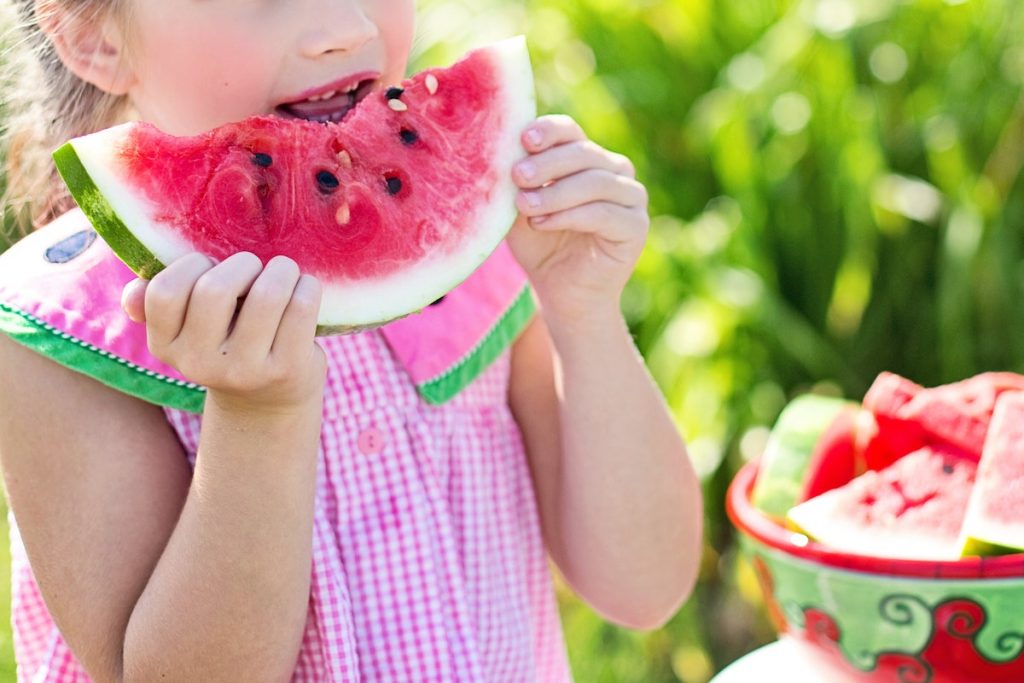- Eating a balanced diet, with plenty of fruits and vegetables, is essential for a child’s physical and mental growth.
- Parents should limit sugary drinks and processed foods, as they can lead to unhealthy body weights, high cholesterol, heart disease, and diabetes.
- Healthy substitutes such as roasted potatoes or whole wheat crackers should be offered instead of sugary treats or processed food.
- Lead by example; children often look up to their parents for cues on how to act regarding eating and exercise habits.
Nutrition is essential for all humans, particularly for the health and development of children. Proper nutrition helps kids grow physically and mentally, boosts their immune systems, and helps them fight illnesses. Unfortunately, many of today’s children are not getting the proper nutrition they need to thrive.
According to a study by the Centers for Disease Control and Prevention (CDC), nearly one-third of American children between ages 2 and 19 have an unhealthy BMI – meaning that they are overweight or obese. This can lead to serious physical issues such as high cholesterol, cardiovascular disease, and type-2 diabetes, leading to premature death in adulthood.
Further complicating the matter is that dietary habits often begin in childhood, and parents play a crucial role in helping their children establish healthy eating habits early. Here are a few tips to help parents ensure their children are getting the nutrition they need to stay fit and healthy:
Introduce Fruits and Vegetables Early

For a good reason, fruits and vegetables are often the poster boys for healthy food choices. They are packed with vitamins, minerals, and antioxidants; provide important dietary fiber; and contain a variety of phytochemicals that can help prevent cancer.
Getting kids to enjoy eating them is not always easy, so it’s essential to start introducing fruits and veggies as early as possible. Make sure to offer various colors and textures – from crunchy carrots to sweet strawberries – so your children can explore different tastes and flavors.
Many child-friendly meals incorporate fruits and vegetables, such as fruit smoothies, vegetable soups, and salads. You can also offer frozen fruit pops or “ants on a log” (celery stuffed with raisins) for an occasional treat.
Limit Sugary Drinks and Processed Foods
Sugary drinks and processed foods are bad for kids. They can cause children to have unhealthy body weights, making them sick more often. Drinking sugary beverages and eating processed foods can also lead to severe problems like high cholesterol, heart disease, and diabetes in the future. Parents should limit how much of these types of food their kids eat.
However, your kids might find those types of food their most preferred choice. Here are a few tips to help you ensure sugary drinks and processed foods are not part of your child’s diet:
Find Healthy Substitutes
Parents can replicate the tastes of unhealthy foods with healthier alternatives. For instance, offer roasted or boiled potatoes instead of french fries; top a pizza with vegetables and lean protein like chicken breast instead of pepperoni.
Remove from Sight
Sometimes, cravings can happen if kids see those unhealthy foods before them. To avoid this, try removing sugary drinks and processed foods from sight or limit their availability to special occasions only. Soda is easily accessible, but you can keep it in high cabinets storage spaces. Instead of sodas, you can use sugar-free water flavor drinks to replicate the taste of juices or sodas.
Encourage Healthy Snacking
Snacks are part of a balanced diet for kids, but parents should be mindful of what snacks they offer. Instead of chips and candy bars, opt for healthy snacks such as nuts, vegetables, yogurt, fruits, or whole wheat crackers. Kids will also love homemade trail mixes with dried fruit and roasted nuts.
Try Different Recipes
Healthy dishes can be just as delicious and enjoyable as unhealthy ones. Get creative with recipes, use different colors and textures, involve kids in meal preparation, and cook together.
Lead by Example

Leading by example is one of the most important things parents can do to help their children stay healthy. Kids often look up to their parents for cues on how to act, and parents are their most influential role models regarding eating and exercise habits. If parents make healthy choices, children are more likely to follow suit.
Studies have shown that if parents lead by example, children are more likely to be physically active, eat a balanced diet, and avoid unhealthy behaviors like smoking and drinking alcohol. Parents can set an excellent example for their kids by engaging in physical activity together as a family or preparing healthy meals together. Involving kids in meal planning and grocery shopping will also teach them about nutrition and help them develop healthier dietary habits early on.
Overall, leading by example is one of the best ways for parents to ensure their children eat right, stay active and live a long, healthy life. By modeling these behaviors yourself – such as eating nutritious food regularly and exercising – you teach your kids important lessons and set them up for success.
Final Thoughts
Nutrition is essential for the health and development of children, and parents play an integral role in helping their kids establish healthy eating habits. It is necessary for a child’s physical and mental growth. Establishing these habits early will help your children grow fit and healthy – now and into adulthood!
